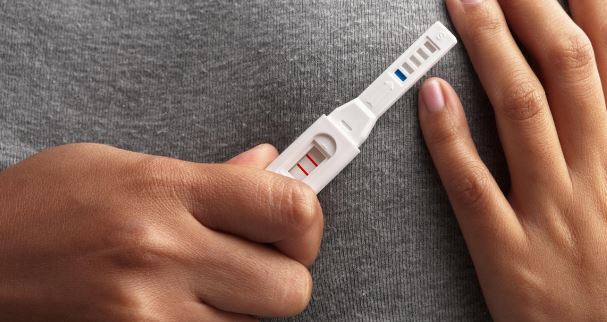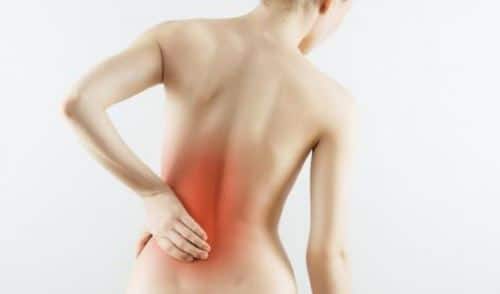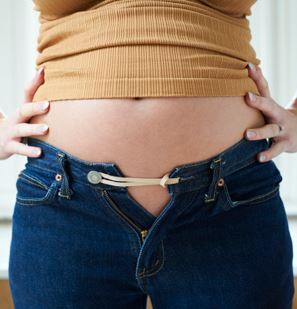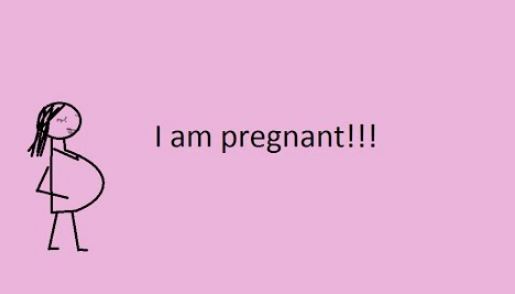The surest way know you are pregnant is to take a pregnancy test. But how do I know I am pregnant before taking a pregnancy test? What are the early signs of and symptoms before a missed period?
Knowing what to look for in the first two weeks after conception or within the first month can help you have a clue whether implantation is successful or not.
So, below is a summary of the earliest signs followed by a detailed guide on telling if you conceived or not.
Earliest signs of pregnancy in the first 2 weeks

Can you tell if you conceived in the first one week? Some women can tell within a few days of conception. That is just a small ratio.
Others will experience the earliest indicators two weeks after conception. Here is a summary of the earliest signs that you are pregnant.
- Sore breasts and nipples feeing tingly
- Feeling tired or extreme fatigue
- Cramping and spotting (implantation bleeding in the second week)
- Missed period
- Bloating and constipation
- Shortness of breath
- Backache or lower back pain
- Heightened sense of smell
- Dizziness or feeling like you are about to faint
- Nausea
- Mood swings
While these are some of the first signs of pregnancy in the first two weeks until your missed period, it is expected that you will start experiencing some of these feelings.
Having all the above may be related to something else other than a pregnancy. A positive pregnancy test is the surest way to know you conceived.
What to expect before you miss your period
Missing your period may or may not mean you are pregnant. There are many reasons for this including medications, hormonal imbalance, weight loss or gain, illness, stress or even thyroid disorder.
Missing menstruation for women who are sexually active and not on birth control is usually suspected to be caused by pregnancy. If you are not sure, we have discussed below the very early signs that may indicate you conceived.
1. Sore breasts

Sore breasts are one of the earliest signs you will notice. It starts to occur around the 3rd week to the 7th week. In some women, breast tenderness or swollen breasts and nipples may last through the first trimester.
- Your boobs might feel heavier and a little bigger than usual.
- You may experience a little heaviness in the breasts.
- The areolas darken and veins may show around your chest.
- Nipples may feel tingly and more sensitive to touch.
These symptoms are usually caused by the heightened levels of progesterone hormone. The body is starting to adapt to it and as a result, it may also retain a little more water than usual.
Breast tenderness as a can make wearing your bra a little bit uncomfortable. Ease the discomfort by wearing a supportive bra. Do this when exercising and also when you go to bed.
2. Fatigue (exhaustion)

Even in the first two weeks after conception, you can start feeling you are unusually tired. The extra progesterone in your body may strain your body a little, leaving you feeling tired.
Tiredness may last longer during your term because the body will continue to strain as the baby grows in your belly.
“The number one cause of fatigue is the hormone progesterone, which is produced more rapidly when you’re pregnant. Progesterone is known to make you feel sluggish and tired, especially when levels are increased.” [Source: Dr. Kristine Eule – Pregnancy Corner].
- As soon as you conceive, your body tries to produce more blood in order to be able to provide nutrients for the development of the baby.
- Your body organs can work a little bit more, making you feel tired and sleepy.
- More stress and fatigue early in in the first trimester may result from changes in the way your body processes food and nutrients.
Being one of the earliest signs of pregnancy, fatigue should reduce towards the end of the first trimester. See a doctor if fatigue lasts up to even the second week of the second trimester.
3. Shortness of breath

Sudden gasping for air is also called dyspnea. Shortness of breath is an intense feeling of a tightened chest or a feeling of suffocation.
One of the first signs you are pregnat right from the beginning is getting sudden episodes of hunger for air.
You may experience episodes of shortness of breath when doing tasks or exercises you normally do with ease. An example is feeling suffocation when climbing stairs. So, what causes this symptom in the beginning first few weeks?
- As soon as you get pregnant, your body needs more oxygen and blood to support the growth and development of the baby.
- During this time, your body is still adapting to the increased demand for oxygen.
- Sharing your oxygen can leave you short of your normal demand, leading to the feeling of suffocation.
According to March of Dimes, an increase in the hormone progesterone in your body will make you breath more often. The hormone, with time, will expand your lung capacity so as to allow your blood to carry more oxygen to supply the baby.
4. Dizziness

Dizziness is a feeling of lightheadedness. It feels like you are about to faint. It can go away as soon as you lie down for a few minutes. If you suddenly complain that you feel dizzy before your period, it could be because you are pregnant.
- While dizziness is a common early sign in the first month of pregnancy, it rarely leads to fainting.
- In the Victorian era, dizziness was considered one of the first physical signs a woman was pregnant.
Dizziness is due to the “woman’s blood vessels naturally relaxing and dilating under the influence of the hormone progesterone, lowering her blood pressure.”
Blood shifts in your body when you change position can also cause dizziness or lightheadedness. For example, when changing positions from sitting to standing. You may also feel lightheaded when getting out of bed. If it leads to fainting many times, see a doctor.
Later in your pregnancy, feeling lightheaded may be caused by low blood sugar due to reduced appetite (from nausea) and vomiting.
5. Headaches in first weeks of pregnancy
The basic triggers of this early sign of pregnancy are dehydration and stress on the body, according to Dr. Diane Christopher, M.D. The hormone progesterone can cause an increase in blood flow that may in turn stress your body.
- Adjusting to the new pregnancy, in itself, can be a challenge to the body. The resultant stress is said to be the cause of headaches.
- Headaches are more common within the first 12 weeks of a pregnancy.
Other than hormonal changes, the fatigue that has been discussed above can also be a source of migraines and headaches.
Occasional headaches may persist later in your term. They are often caused by increased hunger as the baby puts a stain on the body for nutrients. Other causes include emotional and physical stress, sinus congestion etc.
If the headaches persist longer than four hours, see a doctor especially if they are accompanied by other experiences such as puffy face, poor vision or blurred vision, weight gain, etc. Women who usually have migraines are more likely to get headaches during pregnancy.
Try to relax to relieve tension headaches. Spend some time in a dark, quiet room to relieve tension headaches. If they persist, see a doctor.
6. Lower back pain

Most women expect to get backaches when the pregnancy is at a much advanced stage. However, you can get lower back pain as one of the very first signs in the first week or two.
Lower back aches can happen “right at the beginning of pregnancy. Although you don’t have a bump at this early stage, the pain can be caused by hormones that relax ligaments in your back, which can make it ache.”
It is also believed that as your uterus expands during the first few weeks of your term, there is pressure on your blood vessels and nerves. This can result in back pain and leg cramps.
Implantation that happens about 6 to 12 days (first week or second week) may bring abdominal cramping with it. Cramping in some women may be accompanied with lower back pain. During this period, you may also notice another beginning sign of pregnancy – spotting.
You can manage lower back pain by relaxing, and even avoiding strenuous activities during this time. See a doctor if the backaches last longer than 24 to 48 hours.
7. Darkened areolas of nipples
Changes around your breasts are some of the first and very early signs of pregnancy. Other than the nipples swelling, you might observe a change in the color of your areola (the skin around the nipples). You may notice the following.
- Darkening of the areolas.
- The bumps around nipples may become more prominent due to dilation.
- The change in color is likely to be caused by the increased progesterone hormone.
According to Dr. Jill Hichtman, the color change and the prominent bumps “are nothing to be concerned about. They are caused by the swelling of oil glands called the glands of Montgomery”. These glands secrete an oil that lubricates and protects the skin around the areolas.
8. Heightened sense of smell
Do you have an increased sense of smell? Believe it or not, it could be an indication that you are with child. The reason for this is not known scientifically. However, high sensitivity to odors starting in the first days of of your term may be related to the increased estrogen in the body.
- Your nose will be more sensitive to smells of perfume, colognes, foods etc.
- You may start complaining of nausea as early as just a few weeks after conception due to this.
- Like many other initial symptoms the superhuman sense of smell is likely to go away sometime in the second trimester.
Hormones that are strongly linked to be the causes of morning sickness are said to cause increased power of smell as soon as a woman gets pregnant. As we shall see below, nausea is also said to be one of the things you will note.
“Rising levels of estrogen and human chorionic gonadotropin (hCG) in the first trimester trigger nausea, vomiting, and morning sickness.” – The author of The Mommy Docs’ Ultimate Guide to Pregnancy and Birth, Yvonne Bohn, MD.
9. Bloating
Bloating can happen as a sign of period. But it can also be a weird sign you are expecting. It can be difficult to distinguish between pre-period bloating and early pregnancy bloating.

- It is the changes in your hormones that leave you feeling bloated as early as you conceive.
- Bloating can start as early as 3 weeks or 4 weeks.
- Bloating can leave you feeling a few months pregnant even when you are in your first week.
- Feeling bloated 3 weeks before missed period may be due to uterine swelling. This occurs just before and during implantation.
- Gas and constipation may also make you feel bloated right after conception.
Progesterone and relaxin hormones cause the pelvis to relax and the effect can spread to the muscles of your digestive tract.
As digestion becomes slower, there is more time for gas production, making you feel bloated even during the first few dayspost-conception.
10. Heartburn
You may start experiencing heartburn before your missed period. This could due to the fetus developing. Changes in body hormones can lead to slowed digestion and cause heartburn right at the beginning of pregnancy.
Heartburn is also accompanied by acid reflux and constipation. The hormone progesterone causes the sphincter muscle at the top of your stomach to relax. This causes gastric acid to escape into your esophagus, causing the discomfort that is heartburn.
Heartburn and acid reflux can start within the first few weeks after conception. This can worsen in the third trimester when the bay starts to push against the walls of your stomach.
11. Constipation
Constipation, bloating, acid reflux and heartburn are closely related pregnancy in the first weeks. But what causes constipation in the early days of the term? Since your gut is more relaxed due to a change in hormones, it is likely to work slower than usual.
- This results in indigestion and constipation.
- You can ease constipation by drinking enough water, exercising and having enough fiber in your diet.
In the later trimesters, pressure on your rectum due to a swollen uterus can make you feel constipated. Some iron and vitamin supplements that you are taking can also make you feel constipated.
12. Raised temperature
A high basal body temperature (than normal) in the first 18 days can be an early sign you are pregnant. Normally, your body temperature rises as you approach ovulation. You will feel slightly warmer when ovulating. After, your temperature will drop slightly as you approach your period.
However, to observe this, your basal temperature will remain raised even after your period is due. It is always important to monitor your body temperature especially if you are trying to have a baby or just monitoring your ovulation.
13. Mood swings
Hormonal changes when expectant affect your neurotransmitters. This may result in mood swings. You might start experiencing signs of heightened emotions.
- Some women may feel anxious while others may be calm.
- Feelings of sadness or depression are also common.
- In worst cases, you may feel hopeless, sand and unable to cope with their feelings and responsibilities.
In cases of extreme thoughts such as these, see your doctor or mental care professional. Generally, mood swings do not need any medical treatment.
It is however important to be aware of the cause of your mood swings. Let people around you know the source so that they can be supportive.
14. Nausea and morning sickness
Nausea is the feeling of sickness that makes you want to vomit. It is sometimes called feeling queasy in the stomach.
The discomfort occurs in the upper stomach but may not always lead to vomiting. Morning sickness may start to occur as early as the first 3 weeks before a missed period.
- It can get heightened during implantation.
- During implantation, the body produces the hormone human chorionic gonadotropin (HCG).
- HCG has been linked with morning sickness and vomiting.
Nausea that is caused by pregnancy can occur any time of the day. It is very common in the morning but it can occur at noon and even in the evenings. Constantly feeling like you want to vomit should start to subside by the second trimester.
15. Diarrhea
Why am I pooping a lot? Is diarrhea an early sign of pregnancy? In some women, diarrhea can occur as an effect of the change in hormones. You may experience diarrhea or constipation.
According to Mum Junction, only a few women will experience diarrhea in their first few days or weeks of conception.
The biggest complication with diarrhea and vomiting in during this time is dehydration. Loss of fluids in your body can lead to symptoms such as weakness, dry mouth, decreased urination and dizziness.
- Take plenty of water and fluids to keep yourself hydrated during these early stages of your pregnancy.
- Dietary changes can really help reduce loose stool or pooping a lot.
- “Foods like apples, bananas, brown rice etc. help in binding of the intestinal content can be beneficial.” [Source – New Kids Center]
If you experience severe diarrhea, seek medical advice. See a doctor as soon as possible as the symptom can be caused by an infection, viral or bacterial.
16. Vaginal discharge
A vaginal discharge is a normal secretion that keeps the vagina clean and healthy. However, when it increases in amount or changes its color, it may indicate something like a pregnancy, ovulation or even implantation,
“Thick or milky white vaginal discharge or secretion in early pregnancy, usually around the time of a missed menstrual period, is often among the first typical early pregnancy symptoms.” [Source – BabyMed]
Due to hormonal changes, cervical discharge is likely to increase during fertilization, implantation and even later during your pregnancy.
As your body secretes more ovarian hormones, the secretions of the uterine lining and the cervical walls may change, leading to vaginal discharge.
- Increased white discharge is also called leukorrhea.
- Not every woman will experience this in early pregnancy.
- The thick white or milky white discharge is caused by ectropion and exposure of the endocervical glands of the cervix to the vaginal environment.
- The result is an increased production of more mucous secretions that may contain white blood cells.
In some women, this first pregnancy sign may be accompanied by vaginal itching, inflammation around the vulva and even more mucous discharge.
If you think your discharge is not normal, thicker than expected, brown, yellow or smelling bad (foul odor) see a doctor. It could also be a vaginal infection that needs to be treated immediately.
17. Spotting or light bleeding

Is spotting a sign of fertilization and impantation? Why am I having light bleeding before my period? It could mean that you are expecting. Spotting or implantation bleeding may occur even before a missed period.
- Spotting occurs when the embryo (fertilized egg) implants or burrows itself on the blood-rich uterine wall.
- A brownish or pinkish bloody discharge usually occurs several days before the regular period.
- The bleeding is lighter than your normal period, and will last about 2 days.
- The process happens between 6 and 12 days after conception.
Some women can experience spotting that is accompanied by symptoms such as cramping. Abdominal pains and light bleeding a couple of days after conception can indicate you are pregnant. However, a positive pregnancy test is the best way to know you are pregnant.
18. Cramping
Another early sign that you might be pregnant is abdominal cramps. Most women are used to cramping before and during period. The feeling of menstrual cramps before or at a time you expecting your menstruation, especially without any menstrual flow can be among the indicators you are pregnant.
- This type of cramping is however slight.
- Most women mistake these cramps for period cramps. There are a lot of similarities between these symptoms of your normal period.
- Cramping before missed period is caused by the embryo attaching itself to the uterine wall.
- Some women may experience muscular pain since the ligaments in your tummy start to loosen and stretch.
If you are keen enough, you may notice that early pregnancy cramps are felt in the lower stomach and/or the lower back. Sometimes, the cramps may last even after missing your normal period and a few weeks into your first trimester.
You can relieve tummy cramps by relaxing in in a warm bath for about 30 minutes. Light or gentle exercises can also help you relieve the paind and discomfort. These may include swimming and walking. An alternative remedy for ovulation cramping is to curl up your belly around a hot water bottle.
19. Frequent urination
Are you going to the loo more than usual? The hormone HCG can trigger an increase in urination. Most women expect to go for a pee more frequently much later in pregnancy. However, this first sign of even before you miss your menstruation can start just days after conception.
Increased trips to the bathroom or frequent urination is highly related to the increase in blood volume. Much more water and waste products are produced as your body adjusts to the changes it is making to accommodate the baby. As a result, you might feel the urge for urination more frequently.
Later in your pregnancy, frequent peeing will be caused by the pressure on your bladder. As the baby grows in size, your uterus expands pushing down on your pelvic floor muscles, urethra and bladder.
- It is important to stay hydrated throughout your pregnancy.
- To ease this discomfort that comes with this, avoid drinks that have a diuretic effect e.g. caffeinated drinks like tea and coffee.
- Always empty your bladder completely. Lean forward when you pee.
- You can reduce the amount of fluids you take before going to bed to reduce frequent urination at night.
20. Food cravings and aversions
Starting early in pregnancy, the powerful desire for some foods may kick in. Cravings are also called selective hunger.
According to the New Kids Center, “It is actually possible to get cravings a week after conceiving, so in some cases it can be an early sign of pregnancy.”
Food cravings and aversions are a sign of what your body could be lacking in terms of nutrients and minerals.
Some researchers say that women who crave pickles might be deficient in minerals. “Women who crave pickles could be low in sodium, but there’s no real proof of this.” Ice cream is also mentioned as one of the most craved for foods during pregnancy.
- Cravings and aversions are very normal and should not get you worried.
- Despite your cravings, try as much as possible to maintain a balanced diet during your pregnancy.
- It is important to try and resist cravings for foods that are high in fat and sugar content. These have less nutrients but high calories.
When you get the strong urge to eat certain foods, it may be due to the hormone hCG that is causing much of the changes your body starts to go through from the first week. Approximately 90 percent of women experience food cravings and aversions during pregnancy.
21. Dry mouth
Is a dry mouth an early symptom of pregnancy? Starting from conception all the way to the end of the first trimester, you might feel that you have a dry throat and mouth at times. This often occurs at night. A dry mouth may be accompanied by the following symptoms:
- Chapped lips
- A dry, stuffy nose
- Hot flashes
- A bitter taste in the mouth
Frequent urination can lead to dehydration. Hormonal changes can also cause reduced saliva flow, causing your mouth to feel dry.
22. Excess saliva
Do you experience increased production of saliva out of the blue? This is called ptyalism or sialorrhea and can start right at the onset of your pregnancy.
Excessive saliva in the mouth can cause a lot of discomfort and lead to nausea. You might also experience a bitter taste in your mouth.
- Ptyalism is strongly linked with the increased production of the hormone progesterone.
- In addition to the hormonal effects, excessive saliva is due to the heightened sense of smell and cravings. The pleasant aromas can make your mouth produce a lot of saliva.
- Nausea that may happen as one of the first symptoms of pregnancy can also cause you not to swallow more often. As a result, you are likely to accumulate more saliva in the mouth.
Frequent eating of small amounts of well balanced meals, drinking plenty of water and brushing your teeth several times a day can help you reduce the problem of spitting a lot and excess production of saliva.
23. Metallic taste in mouth
Early in the first 3 weeks, you may experience a metallic taste in your mouth. The change in your taste to a metallic feeling is also called dysgeusia. That strange metallic taste can make you feel like you are chewing aluminum or a coin.
A bad taste in your mouth is part of the major changes on your senses of smell and taste. You can remedy it by chewing on acidic fruits such as oranges, sipping lemon juice etc.
You can also rinse your mouth with a mild saline solution to get rid of this weird symptom during early pregnancy.
24. Acne and pimple spots
Pimple spots and acne bumps on your face could a physical symptom you are pregnant. Hormonal changes can give your skin a flush and leave you looking brighter than usual.
You can also get a few spots and bumps, or just an acne breakout as soon as you conceive.
Try not to pick at the pimples and acne spots. You can end up with infected zits on your face. Note that you may get a few acne bumps on your chin or face even if you never get them at all or during your PMS.
25. Feeling hungry
Shortly after you conceive, you may have an increased appetite that will make you to feel extremely hungry more often than usual. Not all women may experience increased hunger.
- Surprisingly, some women may experience reduced appetite.
- Hunger is associated with your body’s adaptation to a surge in hormones as well as demand for more food for the development of the baby.
A home pregnancy test can help you confirm if you are pregnant indeed even before you miss your period. Your heightened appetite could also be because of anything else other than a pregnancy.
26. Missed period
Have you just missed your period? After noticing a majority of the symptoms above followed by a late period, it could be a sure sign that you conceived. This highly applies to women who have regular menstrual cycle.
Missing your menses may also be caused by other reasons. These include stress, illness, medications, some foods, excess weight loss, obesity and eating disorders etc.
After a missed period, you can do a home pregnancy test to determine if you are indeed, pregnant.
27. Positive pregnancy test
Pregnancy tests done at home are reliable. If you suspect you are pregnant, especially after a missed period, you can buy the testing kit and do a pregnancy test at home. A positive result is one of the surest early pregnancy signs and symptoms.
- You can get around 97% accuracy a day after your missed period with a home pregnancy test.
- The test will indicate whether there is or there isn’t a pregnancy hormone called hCG.
If this pregnancy hormone is in your body, you are pregnant. But when should you test for pregnancy? Can you get results in the first week up the third week? How soon can you take the test?
- “Some pregnancy tests’ packaging says they can pick up hCG before your missed period, and the real answer is that they might.” – Parents.com
- The most reliable time to take a test is after you miss your period.
- Always test with the early morning urine. Your first pee is more likely to show you the best and most accurate result.
Signs you’re expectant while breastfeeding
When you conceive while you are still breastfeeding, you may experience most if not all of the early pregnancy signs we have discussed above. In summary, the following are symptoms and signs of pregnancy when breastfeeding:
- A change in the quality of milk as the milk will start to taste more salty and sour
- A significant decrease in milk production due to pregnancy hormones
- Implantation bleeding
- Nausea and vomiting
- Tiredness or fatigue
- Breast tenderness as pregnancy hormones can make your breasts more tender than usual
- Sore nipples making it difficult to breastfeed
Research has shown that breastfeeding reduces a woman’s fertility. However, it does not prevent you from getting pregnant. You might notice the signs above while still nursing. Do a pregnancy test as you could be pregnant.
Sources and References
- March of Dimes: Causes of shortness of breath during pregnancy
- Mother and Baby: How Pregnancy Affects Your Sense Of Smell
